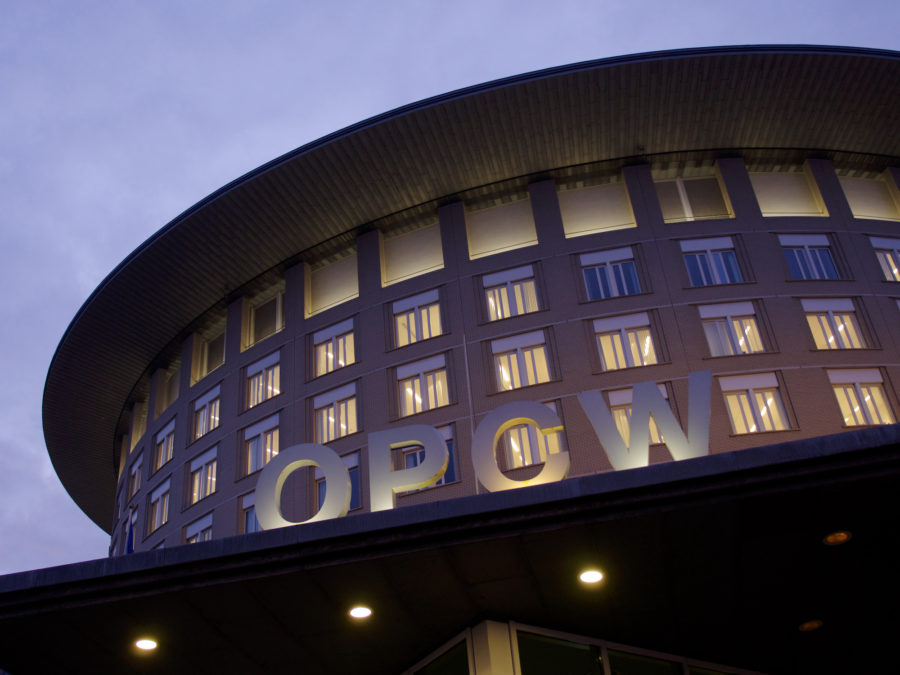23rd May 2022
The Chemical Weapons Convention was a long time in the making

Dr John R Walker worked in the Foreign and Commonwealth Office’s Arms Control and Disarmament Research Unit from March 1985 until May 2020. He served as its head from 2014 to 2020. He is currently a Senior Research Fellow at the Royal United Services Institute and the European Leadership Network, and a Senior Research Fellow in University College London’s Department of Science and Technology Studies.
The Chemical Weapons Convention (CWC) was a long time in the making. It took some twenty years of discussions, bilateral and then multilateral negotiations after signature of the Biological and Toxin Weapons Convention in April 1972 to reach agreement on a text in September 1992. We then had four years of a Preparatory Commission after the Convention was signed in Paris in January 1993 to complete some unfinished tasks from the negotiations and to build up the new organisation (the OPCW) that would implement the Convention after its entry into force.
For those of us involved at the time, the Convention was a major accomplishment facilitated in part by the end of the Cold War. As such it represented a major breakthrough for arms control and disarmament both in terms of its scope and ambition, particularly in the design of its extensive verification provisions for the civil chemical industry and its short-notice challenge inspection regime. Since entry into force the establishment of a network of designated analytical laboratories for environmental and biomedical sample analysis, as foreseen in the Verification Annex, has gone on to prove its immense value to the Convention’s implementation time and time again as has had to deal with numerous cases of CW use.
One of the negotiators’ key achievements was the incorporation of the General Purpose Criterion as the core of the Convention’s definition of a chemical weapon. This made the CWC future proof in terms of its application to all toxic chemicals, not just those in existence at the time of the Convention, but to those yet to be discovered in future. A chemical did not have to be on the CWC’s three schedules to be covered by its prohibitions. The schedules were developed for the application of verification measures, not to define the scope of the Convention.
The CWC has faced very many challenges since its entry into force on 29 April 1997. Not least of these has been the existential threat to the integrity of the Convention posed by the persistent use of chemical weapons by Syria against its own citizens in that country’s brutal civil war. This problem has been made worse by Russia’s mendacious and flagrant efforts to defend Syria at all costs and undermine the OPCW’s work and reports. We have also seen botched attempts by the Russian Federation to use different types of novichok nerve agents to assassinate a former spy and prominent domestic opposition leader. State Parties could not stand idly by and let these violations pass unremarked. Fortunately since 2018 they have taken key decisions to strengthen the Convention’s operation and implementation. Most notably through the creation within the Technical Secretariat of a new Investigation and Identification Team (IIT), which is responsible for identifying individuals or entities directly or indirectly involved in CW use in Syria. The IIT has reported clearly on Syrian culpability and the Executive Council has demanded that Syria take steps to bring itself back into full compliance with its obligations.
Sadly, the CWC has not rid the world entirely of chemical weapons, nor deterred their use or threat of use. There have been new concerns raised over the likelihood of CW use following Russia’s unprovoked invasion of Ukraine, particularly ‘false-flag’ operations organised by Russia. All this is an unwelcome reminder that perhaps one of the CWC’s principal objectives, namely ‘to exclude completely the possibility of the use of chemical weapons’, has not been fully fulfilled. States Parties must therefore remain vigilant and ready to respond robustly to ensure that the CWC remains relevant for the next 25 years.
Note: British Embassy The Hague offers its blog platform for guest posts. The views expressed in the guest posts are those of the authors.
